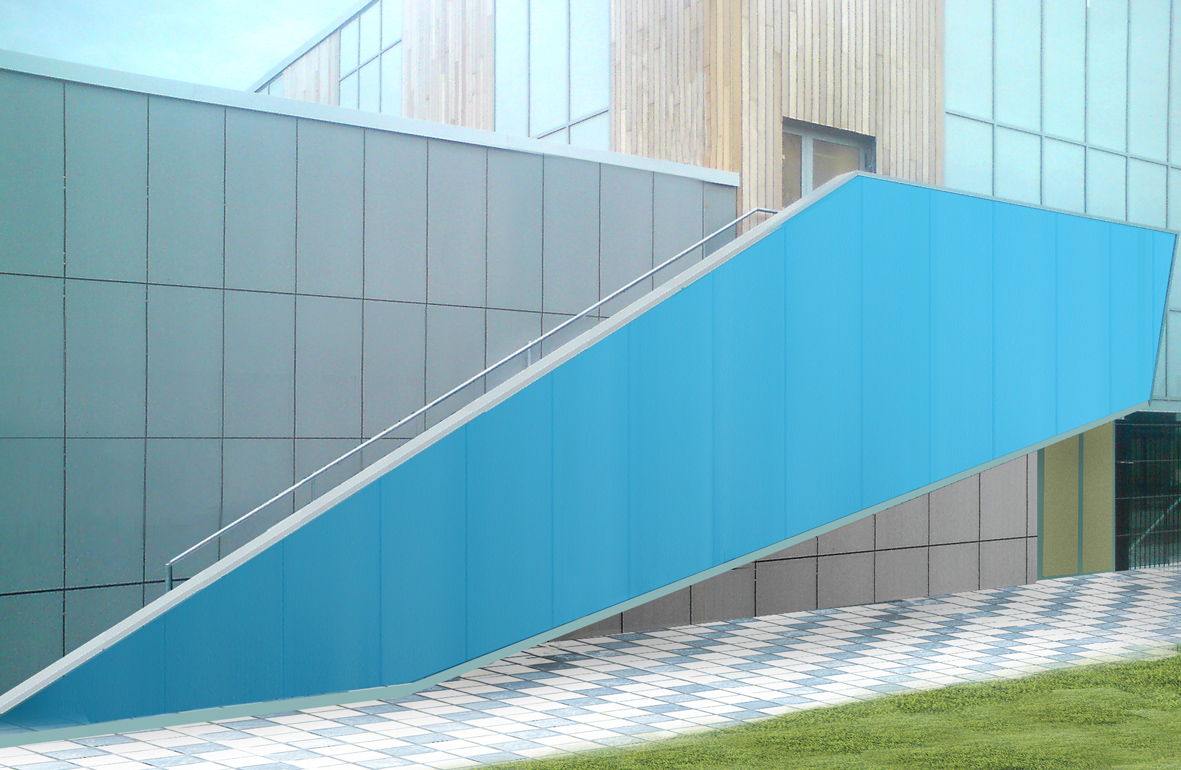Sustainable building design with Multiwall Polycarbonate Sheets

Multiwall Polycarbonate Sheets have been on the market for over 40 years. They find their application mainly in cladding, roofing, skylights, sheds, greenhouses and verandas.
Today, most industrial buildings are made with this multi-purpose material which offers a multitude of advantages in terms of High Environmental Quality (HEQ[1]). Some of these advantages include perfect insulation qualities, durability or high impact resistance.
Equivalent insulation properties to glass at a lower price
Multiwall polycarbonate has high intrinsic thermal-insulation properties which help keeping the heat inside the building. Additional anti-heat treatment can improve this functionality by optimally managing the energy in the building in the winter, by decreasing heat loss outside the building, and in the summer, by limiting heat inputs (and thus air conditioning) inside the building. Multiwall polycarbonate’s thermal insulation coefficient can reach down to 1W/m² K with simple panels or even lower by combining panels in double skin systems [1] (with an air space between the cellular polycarbonate sheets). Furthermore, its low price makes a complete façade affordable.
Optimised integration for all architectural projects
Multiwall polycarbonate panels thanks to a possibility of customizing them in a wide range of colours, finishing and varieties (e.g. translucent, opal or frosted). They can be easily integrated to an industrial building structure or used as part of an interior decoration. Moreover, its cold bending [2] capability helps its panels to be a good fit to many specific requirements. This property makes it possible to create a particular form, which may enhance the value to any architectural design and makes roofing a real 5th façade.
Environmentally friendly material
Since the panels can be cut to a desired length during the production process, waste from offcuts produced during the on-site installation are minimized. Additionally, multiwall polycarbonate panels can be manufactured not only out of virgin but also with recycled material. However, the recycled material has to come exclusively from the post-industrial waste.
Polycarbonate with its intrinsic qualities is a sustainable material with a minimal impact on the environment. It is fully recyclable at the end of its life.
[1] HEQ : Source https://fr.wikipedia.org/wiki/Haute_qualit%C3%A9_environnementale
[2] http://www.greenbuildingsolutions.org/Main-Menu/Home/Modern-Materials-Archive/Architectural-Appeal/Cellular-Polycarbonate-Glazing.html
[3] http://www.greenhouses-etc.net/glazing/polycarbonate.htm